FORT SAM HOUSTON, Texas -- A big difference between an Army pharmacy specialist and a civilian pharmacy technician is that the Soldier can work independent of a pharmacist.
Soldiers can dispense drugs to active-duty members and counsel them about their prescribed medications.
The pharmacy specialists' independence along with their tremendous responsibilities are characteristics of Military Occupational Specialty 68Q.
Each year, instructors from the Army Medical Department Center and School's Pharmacy Branch train up to 250 pharmacy specialists, who will be assigned to major medical centers, smaller Troop Medical Clinics, Combat Support Hospitals, Brigade Combat Team medical activities and medical battalions.
"I think it's (pharmacy specialist) really great," said student Pfc. Gidget Delay, who transferred to the Army in January from the National Guard. "A lot of people think that being a pharmacy tech is just like being a clerk, but it is very mentally challenging and I find it intriguing. A lot more Soldiers should consider it."
Delay, from B Company, 264th Medical Battalion, is one of the 23 Soldiers in Pharmacy Specialist Course No. 05-08 68Q10, who are in their 13th week of training.
Over the 19-week course, the Soldiers will learn the basics of pharmacy: interpreting the prescription order, preparing the label, selecting the right medication and dispensing it, said Capt. Joe Taylor, officer in charge of laboratory subjects of the Pharmacy Branch at the Army Medical Department Center and School.
Along with learning the fundamentals comes pharmacy terminology and administration, dosage calculations, anatomy and physiology, medications' affects on organ systems, memorizing about 500 drug names, medication management and learning to work as a unit's only pharmacy specialist.
Further into the course the training gets very hands on, said Lt. Col. William Starnes, chief of the Pharmacy Branch.
"They start filling prescriptions, counseling mock patients on how to use medications, and how to make IVs," said Starnes, who is a pharmacist.
Toward the end of the course, the Soldiers participate in a 72-hour field training exercise at Camp Bullis. In addition to Warrior Tasks and combat drills, the pharmacy specialists run a Combat Support Hospital's inpatient and outpatient pharmacies.
"They really like the FTX. That's the first part where they get to go out and actually apply all of their skills and realize, 'Hey, all of this stuff that was really hard and we thought that there really wasn't a point to, now I understand why we do it,'" Taylor said.
The last three and one-half weeks are spent in experiential training at the Brooke Army Medical Center Pharmacy working under the guidance of pharmacy staff. The students are partnered with an experienced staff member who closely watches and guides them as they work in the pharmacy, Starnes said.
The staff members ensure the students rotate through the outpatient, inpatient and refill sections of the pharmacy and that they get to practice the skills they learned in the classroom. Although automated dispensing machines are becoming prominent in pharmacies, automation is not stressed during the training, Taylor said.
"We teach them to be proficient in their pharmacy technician skills," he said. "If they go somewhere where there is limited power, limited resources, they know how to handwrite a label and get the medication to the patient."
Many students find the math to be the most challenging part of the course, Taylor said.
Although it is basic arithmetic, it is applied in a way that they may not be accustomed to, such as dosages being reduced, concentrations of solutions being diluted or metric conversions, Starnes said.
Delay said that she found the memorization of the large number of drug names to be the most difficult.
"It's very challenging, but at the same time it's great," Delay said. "It makes you really tap your intelligence."
For Army Reserve Soldier Spc. Jeff Shutterly the most challenging part of the course was time management.
"The academic part isn't the hardest part because they teach it really well," said Shutterly, a former military policeman. "It's balancing this (school) with the demands of the company, the physical training and the formations."
Beginning next fiscal year, the pharmacy specialist program will offer the pharmacy tech national certification test to its students while they are at the AMEDDC&S, Starnes said.
The certification, which is a benchmark in the profession, is optional for Army pharmacy specialists. Soldiers who pass the exam will earn promotion points and the certification lets the graduates' commanders know that they are receiving new pharmacy specialists who have already attained a certain level of competency, he said.
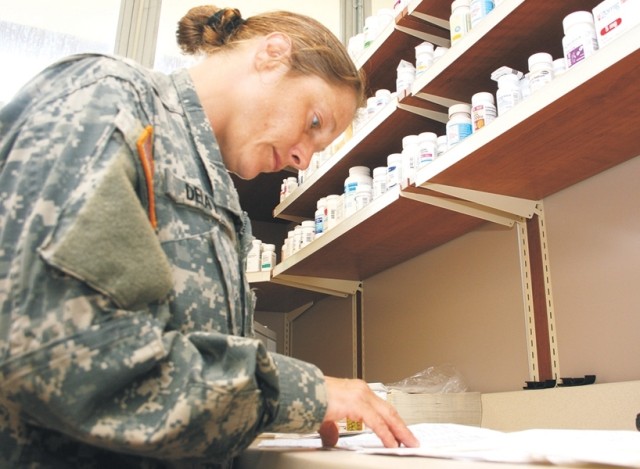
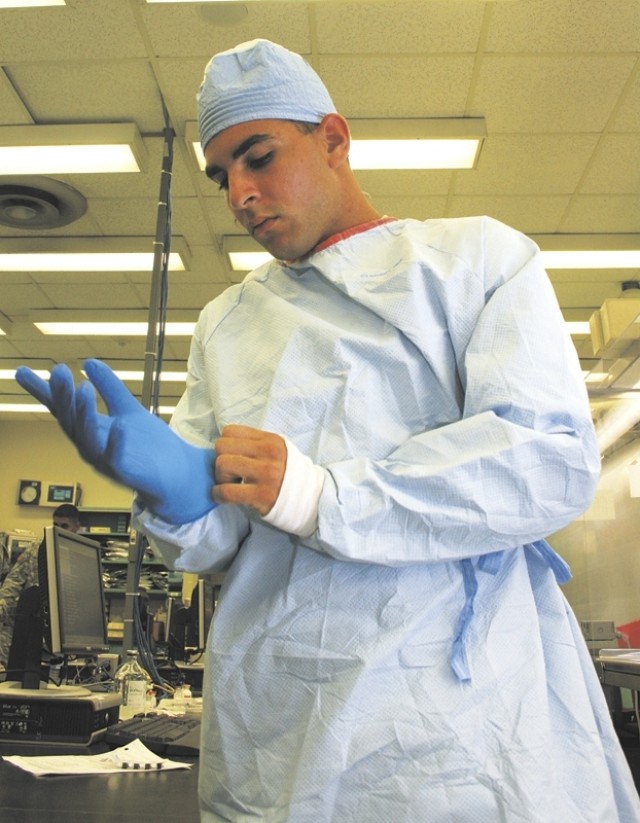

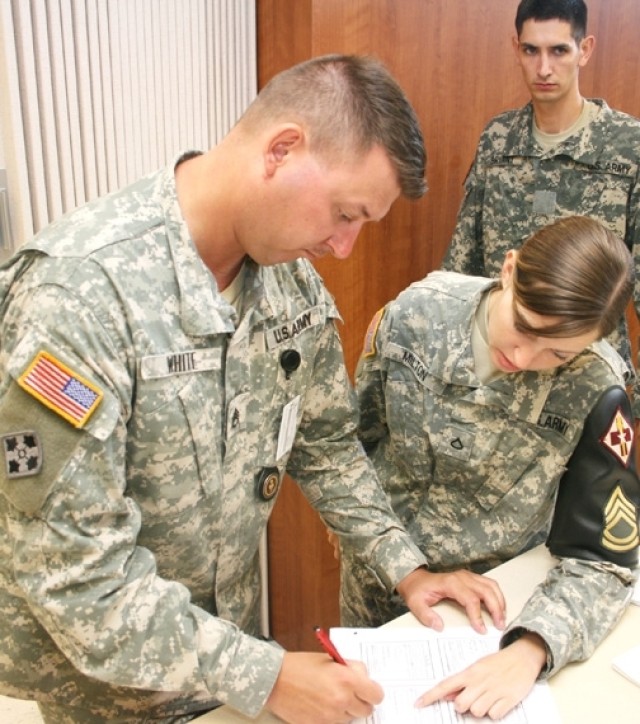
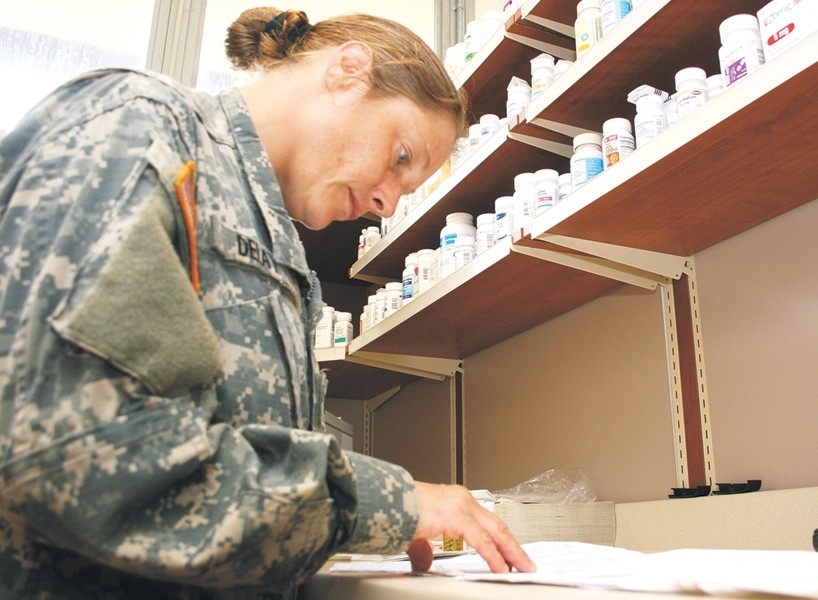

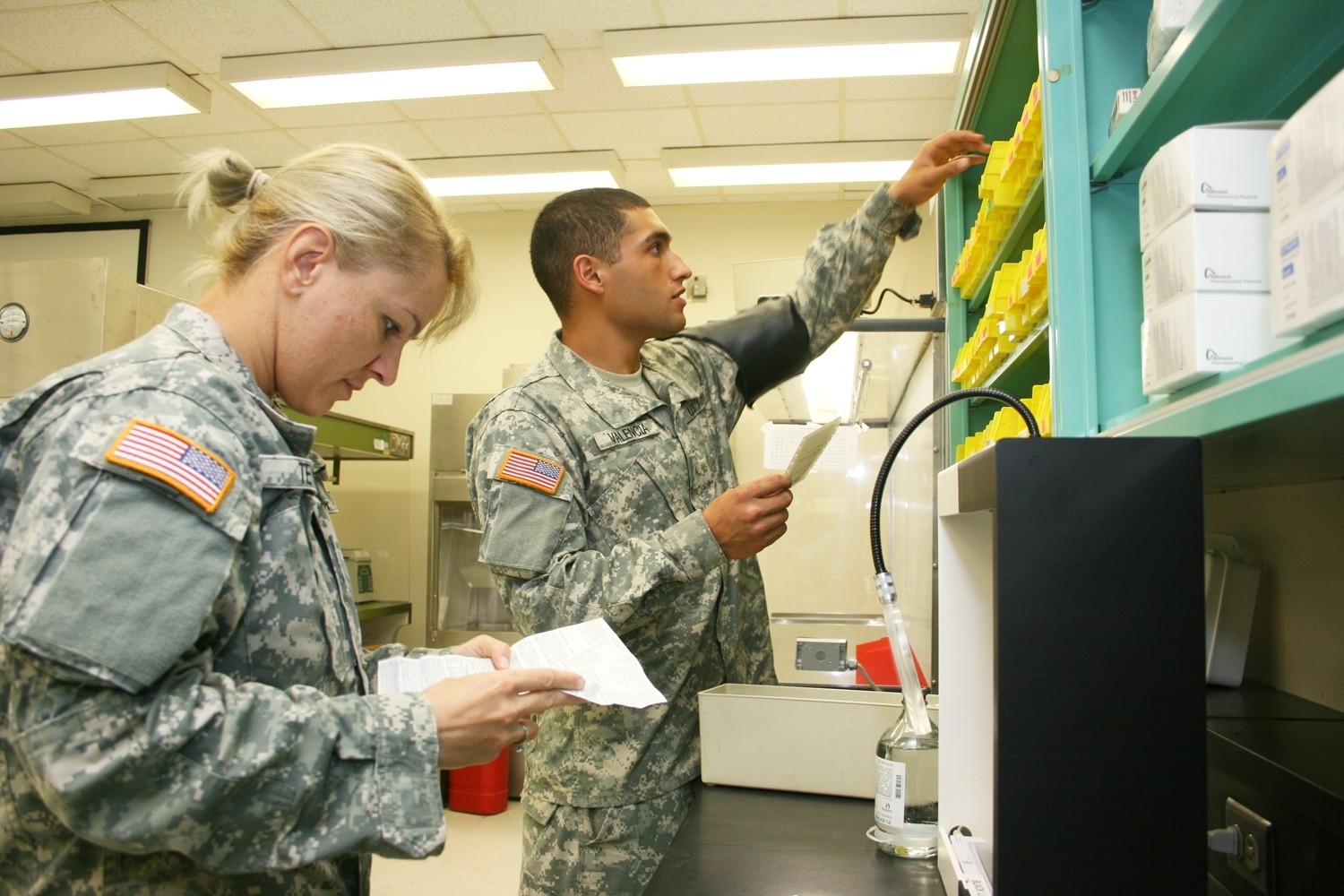
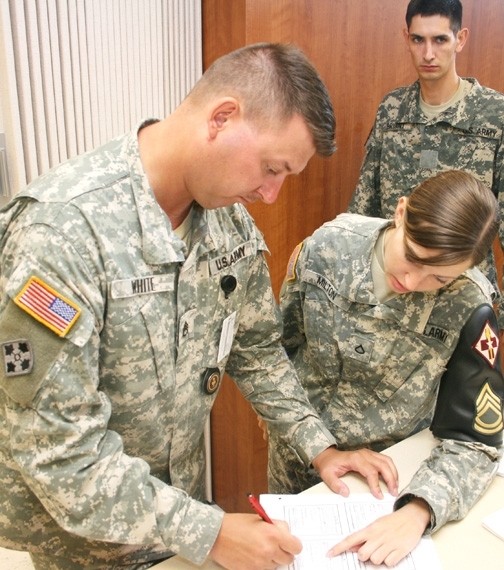
Social Sharing